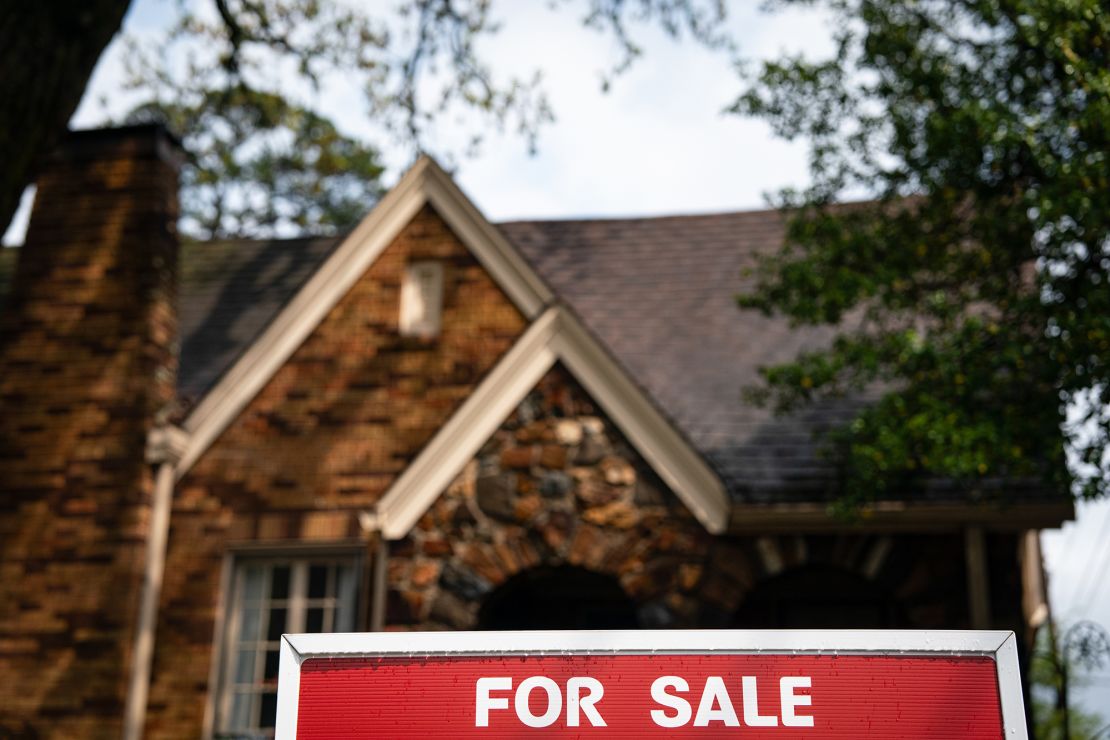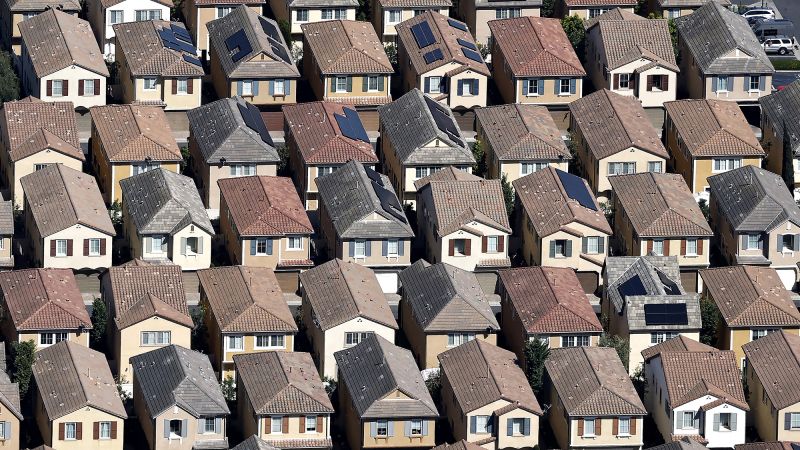CNN
—
A few weeks ago, Los Angeles real estate agent Scott Price got the kind of call that’s only happened once before in his two-decade-long career: His buyer was backing out — just two days before closing.
To Price, the reason seemed to be a growing uneasiness with the economy. Price’s client, warned by his company that layoffs may be coming, no longer felt secure enough to make such a large purchase. Rather than take the risk, the buyer walked away from the home — and their 3% deposit.
“This is not a common occurrence for me,” Price said about the transaction falling through. “It was a very unusual event.”
Though deal cancellations may not be common for Price, they are happening more frequently around the US. In the four weeks between March 17 and April 13, more than 14% of all home purchase agreements in the US were canceled, according to data provided to CNN by Redfin. That’s the highest level for this time of year since 2020, when the early days of the Covid-19 pandemic froze the housing market.
President Donald Trump’s on-again, off-again approach to tariffs this month has led economists to warn that everything from footwear to furniture may soon see price hikes, and some anticipate a recession could occur as soon as this year. But real estate agents say they may already be feeling the effects of economic uncertainty today.
Even before Trump’s April 2 announcement of sweeping tariffs, homebuying in 2025 was off to a slow start. Sales of previously owned homes, which make up the vast majority of the market, dropped 5.9% in March from the prior month, according to the National Association of Realtors. That was the weakest pace of home sales in March since 2009.
Still, many had hoped this year’s busy springtime homebuying season would be an improvement after the pace of national home sales nearly ground to a standstill in 2024, but recession fears and a stock market sell-off that has eaten into many would-be buyers’ savings accounts have heightened the disruptions in the real estate market.
“First-time homebuyers have been a little more skittish,” Maddy Mixter, a Realtor based in Tacoma, Washington, said. “I think there is anxiety around if the markets will rebound and that makes younger buyers even more hesitant to cash out stocks right now.”
“I think, for the most part, people are kind of taking a step back or being really cautious in their moves in the real estate market,” she added.
Ever since Trump announced his “reciprocal” tariffs on all imports to the US, later instituting a 90-day pause on many of the highest tariffs (with the exception of China), stock and bond markets have experienced massive swings.
The bond market directly affects home borrowing rates. Mortgage rates track the benchmark 10-year Treasury yield, which spiked as high as 4.5% in the weeks after Trump’s initial tariff announcement. As a result, the average rate on a standard, 30-year fixed mortgage experienced the largest one-week jump in nearly a year last week.

“Mortgage rates are a huge factor, especially for first-time homebuyers who are really trying to thread the needle of affordability right now,” Mixter said. “Every tenth of a point increase is a big deal.”
Those who may have been saving up to buy a new home by investing in the stock market may be disappointed by the recent performance in their portfolio: The Dow tumbled 9.1% in the first three weeks of April, the index’s worst performance for any April since 1932.
At a time when someone’s finances — or career prospects — might be in flux, Douglas Boneparth, certified financial planner and the founder of wealth management firm Bone Fide Wealth, advises waiting on making a large purchase like a new home.
“It’s a case-by-case basis,” he said. “There may be individuals out there who, regardless of uncertainty, have strong savings or feel fine about their job.”
For those who plan on buying a new home in the near future, Boneparth suggests being more conservative with investments and ensuring that savings aren’t exclusively invested in stocks.
“If you have a short-term goal, like buying a home in the next handful of years, the money that you need to facilitate that transaction, like a down payment, closing costs, furnishing, moving, all that stuff, that shouldn’t be fully invested in the stock market,” he said. “We need to make sure we have the resources available for that decision.”
There’s another way the Trump administration’s trade policies are already impacting the spring home market, though. Tariffs on imported construction goods and appliances have changed the calculation for buyers looking to purchase fixer-upper homes, said Matthew Bizzarro, a Realtor who works primarily in New York City and Westchester, New York.
“The main talk I’ve heard about tariffs is from folks who are buying places that need to be gut-renovated,” Bizzarro said. “Some have started to feel concerned about the cost of goods to renovate and that’s creating pause.”
Mixter, the real estate agent in Washington, also said many of her first-time homebuyers are no longer considering homes that will require renovations.
“Classically, starter homes need a little bit of shining up,” she said. “But I’ve seen a lot of first-time homebuyers that are really cautiously looking at homes that they could just move right in to… just because of the climate and the uncertainty of what’s happening moving forward.”
However, there are some outliers. Mixter said her office has seen interest in real estate purchases among some older homeowners who recently cashed out some stock holdings amid market gyrations.
For now, they see real estate as a sound investment alternative, she said.

